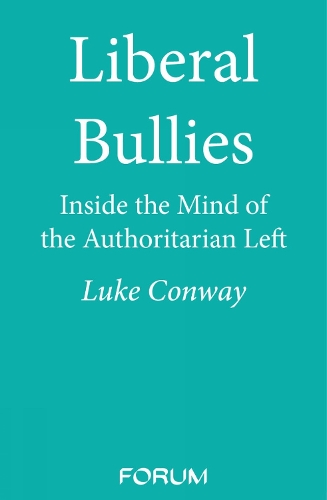
Liberal Bullies: Inside the Mind of the Authoritarian Left
(Hardback)
Publishing Details
Liberal Bullies: Inside the Mind of the Authoritarian Left
By (Author) Luke Conway
Swift Press
Forum
24th September 2024
20th June 2024
United Kingdom
Classifications
General
Non Fiction
Social, group or collective psychology
320.51
Physical Properties
Hardback
304
Width 153mm, Height 234mm
Description
The political left has an urgent and rising problem with authoritarianism. An alarmingly high percentage of self-identified progressives are punitive, bullying, and intolerant of disagreement - and the problem is getting worse.
Using his own cutting-edge research, leading psychologist Luke Conway shows that it's not just right-wing extremists who long for an authority figure to crush their enemies, silence opponents and restore order; it' s also those who preach 'be kind' and celebrate their 'inclusivity.' A persistent proportion of left-wingers demonstrate authoritarian tendencies, and they're becoming more emboldened as they gain cultural and political power. On a range of scientific and social issues, they are increasingly advocating censorship over free debate, disregarding the rule of law, and dehumanising their opponents. These tendencies are part of an accelerating 'threat circle' of mutual hatred and fear between left and right that could tear apart our basic democratic norms.
Concluding with an eloquent call for firm but rational resistance to this rising tide of liberal bullying, Conway presents a way forward for our hyper-partisan era.
Reviews
'
'It will be a source of amusement to future historians that prominent early 21st century psychologists denied the left could be as rigid and sanctimonious as the right. As Liberal Bullies shows, Luke Conway has playeda key scientific role in bringing political psychology back to political reality' Philip Tetlock, author of Superforecasting
' -
'' -
'' -
'' -
'' -
'' -
Author Bio
Dr. Luke Conway is a Full Professor of Psychology at Grove City College. Dr. Conways lab is at the forefront of research related to authoritarianism more broadly and left-wing authoritarianism (LWA) specifically. He is the author of over 90 academic articles and book chapters, and is a Fellow of the Society of Experimental Social Psychology and the Society for Personality and Social Psychology. His research has been featured in the Washington Post, the New York Times, the Huffington Post, Psychology Today and others, as well as on BBC Radio 4.
